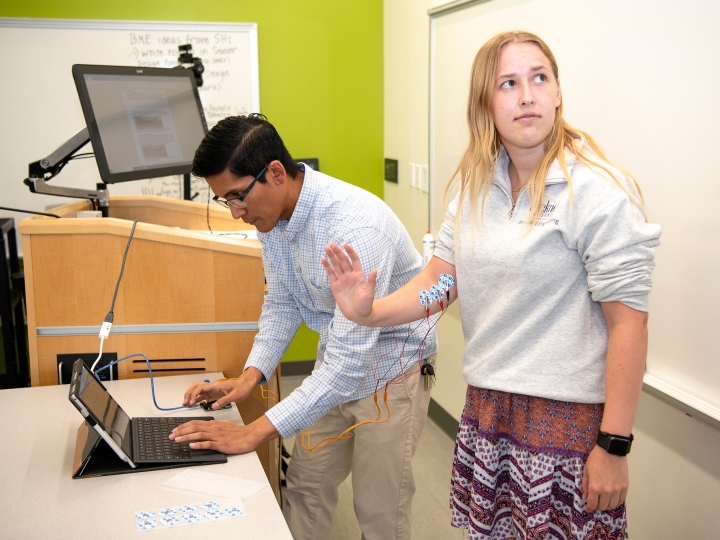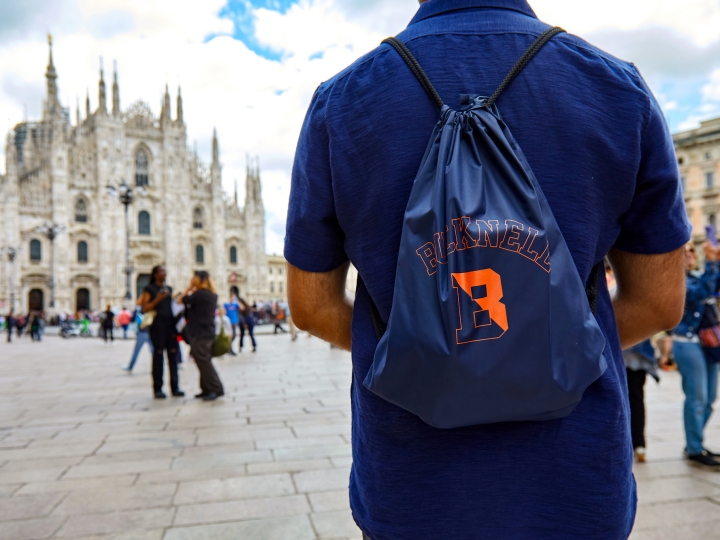Summer Research Explores the Human Side of Computing
August 31, 2018
There's much more to computer science than computers. Just ask Sofia Ayuso '21, a computer science & engineering major who spent her summer wrestling with human-focused questions about the charts, graphs and infographics we come across every day in our online lives.
Find Your Path
"My research is in the area of human-computer interaction and combines psychology with computer science," said Ayuso, an international student from Isla de Margarita, Venezuela. "It's changed my perspective of what computer science is, and showed me that it's a lot more than coding."
Throughout the summer, Ayuso worked side-by-side with Professor Evan Peck, computer science, to study how people interpret different presentations of data — from slick, illustrated newspaper graphics to stripped-down bar and line graphs — and whether their understanding correlates with factors such as their socioeconomic background, level of education and political affiliation.
The project challenged Ayuso — a scholarship tennis player who enrolled in the College of Engineering seeking intense technical training — to wrestle with more humanistic questions than she expected. She worked from interviews that another student, Omar El-Etr '19, conducted last year at the nearby Lewisburg Farmers Market, and designed a new survey to extract themes from that data.
"Professor Peck has given me the main goals of what we're trying to accomplish, and it's been up to me to find the ways to do it," she said. "I was scared before starting — I had talked to other students who had done research, and they said it's going to be challenging and you're going to be stuck sometimes. But I feel like I'm gaining confidence to know I can do work like this — that I can understand the topic and figure things out for myself."
"It's a very sociological study. A core piece of my field of human-computer interaction is that you actually have to understand the people you're designing your systems for" says Sofia Ayuso ’21
Ayuso is one of hundreds of Bucknell students who spent the summer on campus working with their faculty advisers on projects that discover, create and advance knowledge. Through sources such as the Program for Undergraduate Research, the Presidential Fellows Program and the Clare Boothe Luce Scholars, students receive free on-campus housing, a stipend to cover living expenses and the time to dive deeply into projects that have captivated their own interest. Ayuso's project was funded through the College of Engineering and the Department of Computer Science.
The project gave her a chance to dig into a topic that's extremely relevant today. Charts, graphs and infographics "are a really important way of communicating on the web, and getting people to pay attention to data," Peck explained, "but we've never checked whether the way we're designing those portraits of data actually resonate with people. Do they pay attention to them? Do they understand it? Do they care?"
While it may seem simple, Peck said the studies that have asked such basic questions about data visualization have typically focused on narrow, highly educated groups like college students and professional analysts. A broader look is needed, he said, because "data is increasingly governing a larger part of our lives — whether it's deciding whether we get a loan or not, which medical treatment we get, or which college we're going to.
"If it's important to understand data in order to make good decisions, we need to think a lot harder about communicating data in a way that actually fits people around the world," he added. "Not only people who have a statistics background or people who are college educated, but all of the people whose lives are directly impacted by this data."
Learn more about summer research opportunities at Bucknell.

